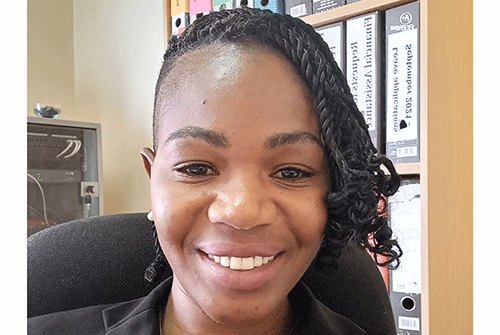Giselinde Shivolo
According to research, the average woman sheds about 50 millilitres of blood during her period. This is a monthly occurrence. Although an unbelievably small quantity than what it might appear, this shedding is accompanied by varying amounts of emotional torture for most women. The nature of women is indisputably special; unfathomable. Women are created in such a way that they can withstand/tolerate pain or perhaps they are just too good at hiding it. Some would say they do not enjoy people feeling pity for them, others see it as a weakness they would rather not reveal.
But the reality is every woman goes through a remarkable phase monthly. While some look forward to the monthly phenomenon with great zest owing to the radiant glow it brings, others despise its arrival, unsure of the unpredictable misery it carries. A majority cite a series of unbearable pain, sometimes impossible to suppress with a mere painkiller, and a host of other emotions that would generally range from morning sickness, irritability, unexplained anger or sadness, hyperactivity, and the list goes on. Ironically known as the ‘curse of Eve’, menstruation affects women differently. Actually, there are two types of women. You find women who diarise everything, the type that would know when they are ovulating and all. Then there’s the “the Lord is my shepherd” kind of women. The latter never know when to expect their period, and are therefore caught off-guard monthly, which often causes unexpected outbursts. Although menses announce their arrival through what has come to be known as pre-menstrual syndrome (PMS), there are still a number of women who find it hard to deal with the associated emotions. History has proven that not much can be done to ease this ‘burden’, at least not for the underprivileged population, however, measures can be developed to sympathise with the fragile gender. Pro-women policies can be implemented to ensure that women are cared for, not only when they bring forth life but whenever nature knocks them down.
Although not an uncommon practice globally, in Africa, Zambia happens to be the only country that accords its women one day of leave for menstrual reasons. Dubbed as ‘Mother’s Day’, Zambian women are entitled to one day of leave during their menstrual cycle, and are not obligated to submit a note from the doctor. Maybe not enough, but in Oshiwambo there’s a saying: “ekupa kashona ekuxunga omwenyo”. Similarly, in Europe, Spain recently set the trend to become the first European to approve the granting of paid menstrual leave.
Japan has a law dating as far back as 1947 that obligates companies to give women menstrual leave if they request it, for as long as they need it.
So what could keep Namibia from having this talk? Earlier this year, Namibia made headlines for removing the 15% value added tax (VAT) from sanitary pads, a move taken to allow affordability of sanitary towels by women from all walks of life. Although I still hold the opinion that a holistic approach should have been taken, and make sanitary pads completely free, just like family planning.
Research has established that a woman’s energy, focus and productivity levels are at their lowest during her period. This then means that for the five to seven days of the period, an average woman will not be productive, be it at work or school, instead, it turns into a roller-coaster of emotions that could otherwise be better controlled off-site.
I think it’s time to sit around the table and consider granting Namibian women menstrual leave.
*Johanna Ileka-Nangolo is the control administrative officer of Oranjemund constituency office, and representative for women on the Affirmative Action (AA) Committee of ||Kharas Regional Council, but views expressed herein are not those of the council, but her own.


